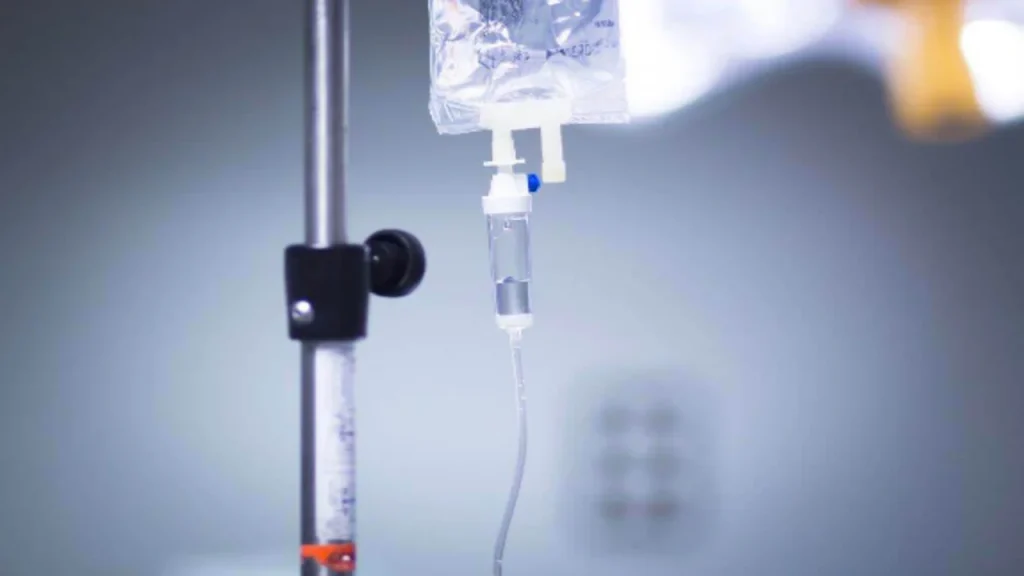Side Effects of Ketamine Therapy
Ketamine therapy, an innovative approach to mental health treatment, has raised questions about its side effects, including concerns about whether “Does Ketamine Therapy Get You High?” Understanding these effects is crucial for those considering this therapy. Ketamine, a powerful anesthetic, offers a unique experience during treatment, often described as a dissociative state. This state can lead to feelings of detachment from one’s environment and self, which some might interpret as being ‘high’.
Short-term Effects: Commonly reported short-term effects include dizziness, nausea, and a sense of disorientation. These symptoms typically resolve quickly, often within hours of the session.
Long-term Effects: Long-term effects are less common but can include changes in mood, perception, and cognitive function. It’s important to have these treatments under medical supervision to mitigate such risks.
Does Ketamine Therapy Get You High in Depression?
Ketamine therapy represents a breakthrough in treating depression, particularly for those who haven’t found relief through traditional antidepressants. Its rapid action and ability to improve mood symptoms quickly is a significant advantage over conventional treatments.
Mode of Action: Ketamine works by blocking NMDA receptors in the brain, which plays a critical role in mood regulation. This blockade leads to an increase in the production of brain-derived neurotrophic factor (BDNF), encouraging neural growth and connectivity, which are often impaired in depression.
Clinical Evidence: Numerous studies have shown that ketamine can rapidly reduce symptoms of depression, even in treatment-resistant cases. The effects can be felt within hours and last for several days to weeks.
Can Ketamine Therapy Lead to Addiction?
A common concern about ketamine therapy is the potential for addiction. While ketamine does have addictive properties, its use in a controlled, clinical setting greatly reduces this risk.
Controlled Administration: In therapeutic settings, ketamine is administered in low, controlled doses, significantly lowering the potential for addiction compared to recreational use.
Monitoring and Guidance: Patients undergoing ketamine therapy are closely monitored by medical professionals, ensuring safe and effective treatment and reducing the risk of misuse.
What Conditions Does Ketamine Therapy Treat?

Ketamine therapy is not just for depression. It has shown promise in treating a range of conditions, including:
Anxiety and PTSD: Ketamine’s rapid action can alleviate symptoms of anxiety and PTSD, providing relief when other treatments have failed.
Chronic Pain: Some studies suggest ketamine can be effective in managing certain chronic pain conditions, such as neuropathic pain.
Other Mental Health Disorders: Emerging research indicates potential benefits in treating disorders like bipolar disorder and OCD.
Duration of a Ketamine Therapy Session
The duration of a ketamine therapy session varies but typically lasts between 40 minutes to an hour. This time frame allows for the administration of the drug and a period of observation afterward to ensure patient safety.
Immediate Aftercare: Post-treatment, patients may feel disoriented or drowsy, necessitating a short period of monitoring before they can safely leave the clinic.
Ketamine Therapy Outcomes
Ketamine therapy’s success hinges on its ability to provide rapid relief from mental health symptoms, but it’s crucial to balance efficacy with safety. The therapy’s outcomes vary depending on individual patient factors, dosage, and the frequency of treatment sessions.
Individual Responses: Each patient may respond differently to ketamine therapy, with some experiencing significant improvements in mood and others finding subtle changes.
Dosage and Frequency: The dosage and frequency of ketamine therapy sessions are tailored to each patient’s needs, ensuring optimal outcomes while minimizing risks.
Ketamine Treatment Sensations

During a ketamine therapy session, patients might experience a range of sensations that differ from traditional treatments.
Sensory Changes: Patients often report altered sensory perceptions, such as enhanced colors or sounds, during the session.
Emotional Relief: Many find a sense of emotional detachment during treatment, which can be therapeutic for those struggling with intense emotional pain.
Psychotherapeutic Effects of Ketamine
Ketamine therapy’s benefits extend beyond mere symptom relief, offering potential psychotherapeutic advantages.
Enhanced Therapy Sessions: The altered state of mind during ketamine therapy can facilitate deeper psychotherapeutic work, allowing patients to explore and process emotional issues more effectively.
Cognitive Insights: Some patients report insights and increased self-awareness during and after ketamine therapy, contributing to long-term emotional and mental well-being.
Psychological Impact of Ketamine
The psychological impact of ketamine therapy is profound and can lead to significant changes in a patient’s mental health landscape.
Altered Perceptions: The therapy can alter one’s perception of their problems, providing a new perspective that is often more manageable.
Long-term Benefits: With ongoing treatment, many patients report sustained improvements in mood, anxiety levels, and overall mental health.
Ketamine Infusion Experience

The experience of ketamine infusion therapy is unique and can be transformative for many patients.
The Infusion Process: During an infusion, ketamine is administered intravenously under close medical supervision, ensuring patient comfort and safety.
Post-Infusion Reflection: After the infusion, patients often engage in reflection or therapeutic conversations to integrate their experience into their treatment plan.
Feeling High During Ketamine Therapy
While some patients may describe feeling ‘high’ during ketamine therapy, this experience is typically more complex and therapeutic than recreational drug use.
Therapeutic High: The sensation of being ‘high’ during therapy is often associated with a profound sense of relaxation and detachment from distressing thoughts or emotions.
Distinguishing from Recreational Use: Unlike recreational use, the ‘high’ in therapy is carefully managed and is a means to achieve therapeutic goals rather than an end in itself.
Psychoactive Nature

As a psychoactive substance, ketamine’s use in therapy requires careful consideration and expert handling.
Managing Psychoactive Effects: Clinicians are trained to manage and utilize the psychoactive effects of ketamine to benefit the patient’s therapeutic process.
Informed Consent: Patients are thoroughly informed about the psychoactive nature of the therapy and what to expect, ensuring a safe and consensual treatment experience.
Legal and Ethical Aspects
Navigating the legal and ethical considerations of ketamine therapy is crucial for both practitioners and patients.
Regulatory Compliance: Clinicians must adhere to strict guidelines and regulations governing the use of ketamine for therapeutic purposes.
Ethical Treatment: Ensuring the ethical administration of ketamine involves informed consent, patient confidentiality, and a commitment to the patient’s best interests.
FAQs
Can you get high on ketamine?
Yes, ketamine can produce a dissociative state often described as a ‘high’. However, in a therapeutic setting, this effect is carefully controlled and monitored.
What are the effects of ketamine?
Effects include an altered state of consciousness, with potential for visual and auditory hallucinations, and a profound sense of relaxation and detachment.
Is ketamine addictive?
While ketamine has addictive potential, the controlled environment of therapy significantly reduces this risk.
How much ketamine gets you high?
In therapeutic settings, the dose of ketamine is carefully calculated based on the individual’s needs, ensuring efficacy without promoting recreational ‘high’ effects.
What’s ketamine used for?
Ketamine is used for treating various mental health conditions like depression, anxiety, PTSD, and certain chronic pain syndromes.
Also Read: Why is My Left Ear Fluttering: Causes, Symptoms, and Treatments
Final Words
In exploring the query “Does Ketamine Therapy Get You High”, it’s important to note that ketamine therapy offers a promising alternative to traditional mental health treatments, especially for those who haven’t found relief elsewhere. Its potential for rapid relief is balanced with careful medical oversight to ensure safety and effectiveness. As with any treatment, understanding its effects, benefits, and risks is key to making an informed decision.
